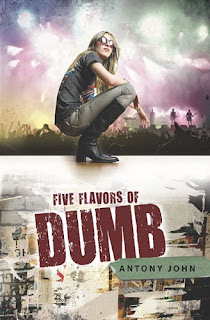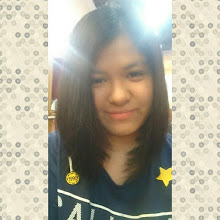Hi guys! Today I have a special guest,
Janni Lee Simner, the author of Bones of Faerie and Thief Eyes.
What part of being a writer do you love the most?
I love the writing process--the joy of discovery in early drafts, the joy of focusing the prose and language of later drafts. Like all writers I have good days and bad days, but I love the overall process that turns a glimmer of an idea into a completed story.
What part of being a writer do you hate the most?
One of the harder parts of writing can sometimes be the waiting, because every part of the process takes time: writing a book, selling it, revising it, the production cycle--there are good reasons all these things take the time they do, and I understand it, but as a writer I did have to learn to be patient!
As a writer, how do you stay inspired?
By writing, in large part, because the whole process of writing is inspiring to me.
But also by making time for not-writing. Because if I'm always writing, and never making time for other things, it's easy to burn out--my whole world becomes about the writing and nothing else. Doing volunteer work, having hobbies that I'm not trying to do professionally--both these things inspire me and fuel my writing in turn.
Have you ever experienced writer's block? How do you deal with it?
I haven't experienced writer's block, but I have experienced burnout. (Though I suspect they may be the same thing--if so, perhaps using the term "writers block" instead of "burnout" gives unnecessary power to what's actually a fairly ordinary thing that people in all professions suffer from.) When I do suffer from burnout, I find it best to step away for a time--to get out a little. distract myself, and get some perspective. When I feel like I'm burning out I also check in to make sure I'm taking care of myself physically--getting enough sleep, getting some physical activity in, eating decently, staying hydrated--all things that can effect how much energy I have for writing (and everything else).
How does your mood affect your writing?
I sometimes feel it's more like my writing affects my mood. A bad writing day can leave me feeling a little tired and down, while a good one can leave me feeling wired and bouncy. Though this is another place where having interests outside of writing has been important to me, because if my writing was the only thing affecting my moods, they'd swing back and forth pretty wildly--because all writers have good and bad days!
Who or what inspired you to write Thief Eyes? How?
Visiting Iceland inspired me to write Thief Eyes.
And the Icelandic sagas, thousand year old stories about Iceland's earliest settlers, inspired me to write Thief Eyes.
I was only dimly aware of the Icelandic sagas when I first went to Iceland, but I brought a copy of Njal's Saga with me. By the end of the first page, I was hooked. That's where the story introduces Hallgerd, a woman whose uncle declares--while she's still a child--that she has "the eyes of a thief." Hallgerd is still remembered for having refused her third husband, Gunnar, two locks of her hair to restring his bow with in battle.
After I met Hallgerd, I kept wondering just what it meant to have the eyes of a thief as I kept reading. Then, one day while I was in Iceland, I found myself at Thingvellir, the original site of Iceland's thousand-year-old parliament. Thingvellir is located in a rift valley where the North American and European tectonic plates meet, and you can see the cracks in the earth beneath your feet where the land is pulling apart--it's very much a place of power. Countless saga battles and confrontation took place at Thingvellir, and it's also the place where Hallgerd and Gunnar met. (The characters in the sagas are mostly real, though no one is sure how much of their stories are fact and how much historical fiction.)
And it hit me, as I walked through Thingvellir, wind blowing around me, that a thousand years ago the characters I was reading about had walked the same ground I was walking now. That was a shivery moment, one where I could feel the past breathing over my shoulder.
That's when I heard a voice whisper in my head, low and full of rage, "I will not allow it."
Later, when I was safely back home, I would wonder where that voice came from and whether it was real. Just then, I did what any writer would do upon hearing a voice in her head. I sat down, and I wrote down the words--Hallgerd's words.
Five years and a second visit to Iceland later, those words and the ones that followed them became the opening of Thief Eyes.
What lessons will readers pick up from Thief Eyes? What message did you want to put in the minds of readers?
I don't think I had any specific messages in mind when I wrote Thief Eyes. I tend to focus on telling a story, and so usually even I'm not entirely sure what that story is about until I've finished writing it. Looking back at it I do think there are themes about forgiveness and communication and grief and time there, but I'm just one reader, and others might take entirely different meanings away from the book. They would be as right about the meanings they find as I am, because once a book is released into the world, I think what it's about is about the reader and the story, not the reader and the author.
Was there a part of the novel that was particularly hard to write?
There's this one scene toward the end--it's hard to talk about it without spoilers, but it has to do with how Haley breaks free from the fire magic within her--that was especially hard to write because it was so emotionally intense to me. Each time I revised it, it became a little more painful to read.
I've learned, though, that when I have a scene I want to flinch away from like that, often that scene is exactly what's needed to be true to the story--and that was very much the case there.
Which part is more fun to write – beginning, middle or end? Why?
I love writing beginnings, with their sense of possibilities unfolding, and often my books begin with an opening that makes me want to dive in and know the rest of the story--this was true for the openings of both Thief Eyes and Bones of Faerie. Middles and endings are harder for me. I tend to rewrite my endings especially more than any other part of the book. But I love that sort of "click" I feel inside when I finally get an ending to land just where it needs to. So endings are fun, too--it's just a sort of fun that involves a lot more work.
Can you tell us about Haley's personality?
I think of Haley, at the start of the book, as someone who's just trying to hang on and make it through each day, though I'm not sure she'd think of herself that way. But a year ago, when her mother disappeared, her world fell apart, and she's been in survival mode ever since. Even so, she remains passionate about her interests: running, wildlife biology, and her boyfriend back home, Jared, who helped her cope during the long year her mother was gone. Though her thoughts about Jared become more complicated and troubled once she travels to Iceland and meets Ari, an Icelandic boy she feels just as drawn to.
How is the element of close or potential danger, in the form of Ari, essential to the story?
What's intriguing to me is that Ari takes on a dangerous form, yet as Haley observes him and thinks things through, she uses her judgment and decides he might not be as dangerous as he looks, though she remains cautious at first. But the real dangers of the story ultimately take other forms--spells cast, bargains made, promises broken. I think maybe Ari's presence brings out the fact that danger isn't ultimately about the shapes we wear, but about the actions we take and are responsible for--about how we and those around us use our power.
What is Ari and Haley's relationship like?
I think it's still evolving--they haven't known each other very long, after all. They do know that they care about each other, respect each other, and have good chemistry together--and they've been thrown into an intense situation, so they learn to trust and rely on each another very quickly. But in spite of all that intensity, they're still in the process of getting to know one another.
What tips can you give to aspiring writers?
Don't be afraid of writing messy rough drafts, if that's your process. A story doesn't have to be perfect right away--there's time enough to revise later. It usually takes me five drafts to get from an idea to a finished story, and the first draft often bears little resemblance to the final one.
Whatever writing process works best for you, don't worry if it seems different from everyone else's. Try everything, and stick to what works best for you. There's no one correct way to write. Every writer works a little--or a lot--differently--and that's not only okay, but as it should be!
Thanks Janni!
_______________________________________________________
Book Description via Goodreads:
After her mother mysteriously disappears, sixteen-year-old Haley convinces her father to take her to Iceland, where her mother was last seen. There, amidst the ancient fissures and crevices of that volcanic island, Haley meets gorgeous Ari, a boy with a dangerous side who appoints himself her protector.
When Haley picks up a silver coin that entangles her in a spell cast by her ancestor Hallgerd, she discovers that Hallgerd's spell and her mother's disappearance are connected to a chain of events that could unleash terrifying powers and consume the world. Haley must find a way to contain the growing fires of the spell—and her growing attraction to Ari.
Janni Lee Simner brings the fierce romance and violent passions of Iceland's medieval sagas into this twenty-first-century novel, with spellbinding results.
Rules:
- Be a follower
- Comment on this post and leave your email address
For Extra Entries:
+1 tweeted (with link)
+1 sidebar (with link)
+2 blog - must be official post (with link)
US Residents only (Sorry! But the publisher will be the one mailing the books.)
Ends on September 10, 2010.
*Thanks to Random House, Janni and Meg for this giveaway.
















































![Validate my Atom 1.0 feed [Valid Atom 1.0]](valid-atom.png)